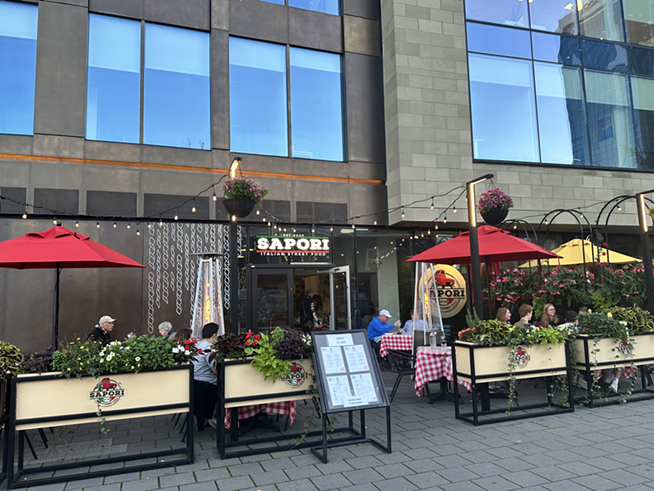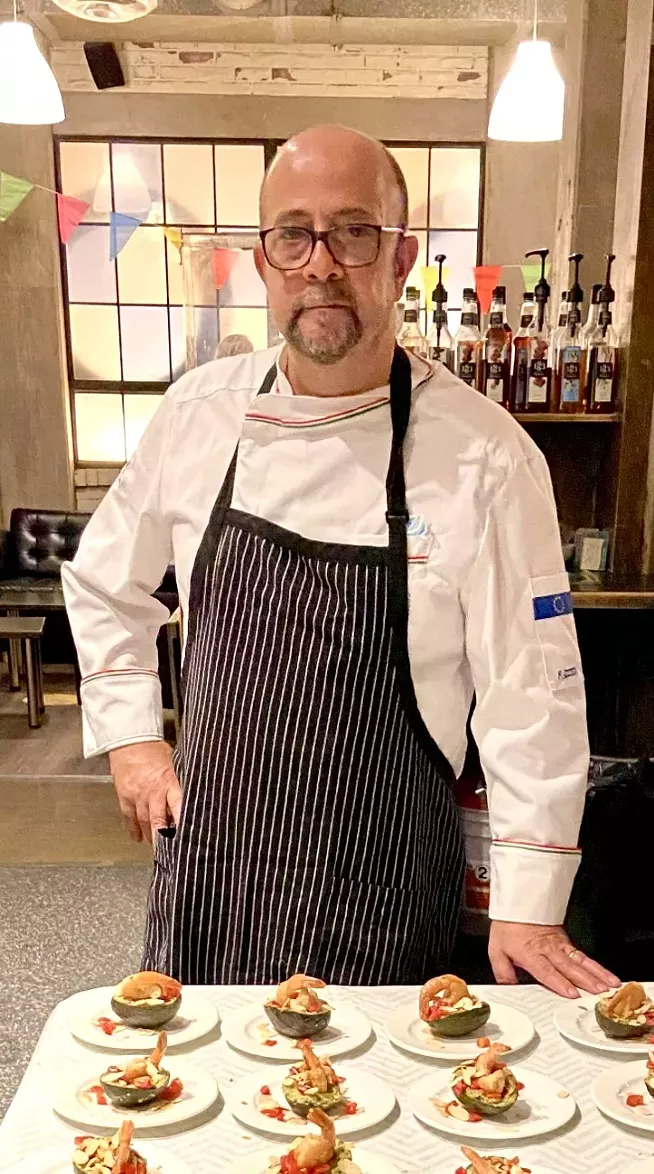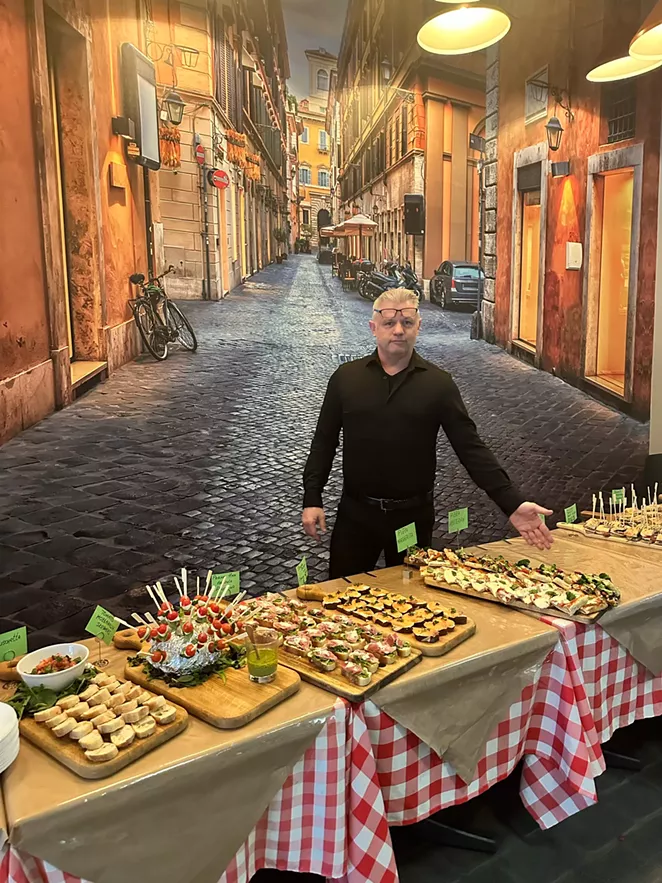I’ve been to Italy almost too many times to count. Crafting food and wine experiences there is a pleasure—if not a stroke of genius—as every corner of ‘the Boot’ has its own unique and wonderful food culture. It makes tour planning easier there than in most places around the world. At the root of Italian food culture is the concept of “less is more” and allowing ingredients to shine—a philosophy that has historically been a challenge for North Americans to embrace. Perhaps it’s our “more is more” attitude, that pervaded society through the ’80s, ’90s and 2000s.
I grew up in an era when homemade tomato sauce was overloaded with onions, celery, carrots, peppers, lots of garlic (to be honest this was the ’80s so it was garlic powder), dried herbs, and invariably a load of ground beef. Don’t worry mom, I still have fond memories of spaghetti with meat sauce, but the best tomato sauces I’ve had in Italy have featured scant few ingredients: olive oil, sofrito (onion, carrot, celery), San Marzano tomatoes and salt—lots of salt. My Italian mama (not really my mom, but she acts like it when I visit her in Italy) Theresa says of not adding garlic, “the onions and garlic don’t talk.” Theresa also adds a splash of milk after sweating the sofrito to help break them down. In the case of ragù, it’s cooked with various meats including duck, rabbit or wild boar—or, in the case of a Bolognese, ground beef, pork or a combination of both. With or without meat, a classic tomato sauce is simple.
While Italian Canadian dining experiences have long followed that “more is more” ethos, we are increasingly seeing more authentic, Italian-owned and -operated dining options in Halifax. Most aren’t large. In fact, two of my new favourites are quite small and unassuming.
click to enlarge

Submitted
Sapori on Lower Water Street.
Over the past few weeks, I’ve come to know chef Luca Ferrante and his Queen’s Marque, Lower Water Street-based Sapori restaurant, which brings Italian street food to Halifax. Ferrante is genuine and affable but not overbearing. The restaurant features an open kitchen, and a long row of checkered-tablecloth tables set against the backdrop of large, Italian-inspired murals, including one of the back alleys of Rome, where many of its best restaurants reside, and another showcasing the dramatic hillside town of Positano on the Amalfi Coast.
Don’t expect fine dining or candlelit tables here. The space, much like its owner, is unpretentious and unassuming. While I’ve yet to explore the full menu, I can say Sapori’s Roman-style pizza will appeal to a broad demographic. It features a thicker dough and crust than Naples-style pizza, and the toppings are generous enough to satisfy Canadian expectations—yet still restrained compared to North American alternatives.
Chef Ferrante says of Italian food and its importance to Italian culture: “It is prepared with love and passion.” It’s also simple. Ferrante, who teaches pizza-making classes in winter during the restaurant’s slower season, uses a straightforward method for his dough: flour, water, active dry yeast, extra virgin olive oil and salt—nothing more. His pizza sauce is equally simple, as it is simply vine-ripened San Marzano tomatoes with salt, a hint of cracked pepper, dried oregano and fresh basil leaves combined using a handheld blender. No cooking involved.
Perhaps, the talent lies in the kneading. Watching Ferrante at work recently, he used a folding technique as he describes, “taught to me by my mother and grandmother.” Slightly ironic, considering Ferrante spent his early chef years working alongside his father at their family restaurant in a coastal village in Lazio, between Rome and Naples. The other key ingredient is letting the dough rest. Ferrante lets it rise for three hours at room temperature before placing in the refrigerator overnight. He never uses a dough that hasn’t had a day to settle.
click to enlarge

Submitted
Chef Giuseppe Tagliareni of aPria Café.
On Agricola Street, Nicoletta Guzzi and Giuseppe Tagliareni, run aPria Café and Original Italy Catering. The couple originally moved to Halifax to work for others in the hotel business, but 10 years ago decided to launch a catering company. Last year, they made the leap to a bricks and mortar operation, opening up aPria Café. As for why the couple has chosen the food and hospitality industry—which they have been in for more than 40 years, 35 of which operating their own hotel and restaurant in Italy—“we discovered that our passion was in food. Food unites people, it brings joy to those who prepare it and those who consume it. This is at the heart of our business.
The café which runs as both a morning coffee shop and lunchtime limited seat restaurant, focuses on fresh pasta, and other dishes that reflect Guzzi and Tagliareni’s roots. Tagliareni is originally from Sicily (Sicilia), while Guzzi is Ligurian. Of their cuisine Guzzi says, “we love to share Mediterranean ingredients that are healthy and varied, that’s why our dishes are so tasty!” Be sure to have their focaccia, a regional specialty of Liguria, as known as the Italian Riviera.
Whether it’s a perfectly cooked Roman-style pizza or the scent of Ligurian focaccia wafting from a tiny café kitchen, Halifax’s already popular Italian food scene has recently gotten a little more Italian seasoning thanks to Sapori, aPria and others like Espresso 46, the latter a well-hidden coffee shop on Isleville Street in Halifax’s North End which delivers a much needed infusion of Italian-style coffee to the city. These small, chef and barista (as is the case of Espresso 46) driven spots may lack the polish of high-end dining rooms, but they offer something of value: a genuine connection to Italy’s rich culinary traditions, served with warmth and simplicity.

